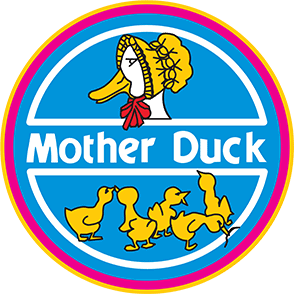
Focus Foods
Concentrate! Focus! Get your thinking cap on! They’re comments we’d associate with older, school age children but not necessarily with toddlers or pre-schoolers. However, our little ones are learning about their world at a phenomenal rate. From negotiating the stairs to negotiating toy-sharing with play-mates, there are so many areas small children are learning about that it’s hard to overestimate the activity going on in their brains. Making sure our youngsters are well nourished will help them to maximise their powers of concentration (limited as they may be for toddlers and pre-schoolers) and help them learn about their world.
This article stems from a question raised by a parent from one of the Mother Duck centres. She asked if there were recommended foods that would help with children’s concentration and learning. I started to answer her question that month but soon realised it really needed much more than one blog to go through all the information. Thus, I’ve tackled some of the background information over the past few months’ blogs, looking at fuelling young bodies with healthy carbohydrates, and supporting your child’s iron intake. In this blog, I’m going to pull that information together, with some other factors that influence children’s concentration all in the one place.

Of course, a key factor in our children being at their best, both physically and mentally, is making sure they’re eating all the nutrients their growing bodies need. A balanced diet, including enough choices from each of the food groups, will ensure all the essential protein, vitamins and minerals, and other nutrients are included. As well as providing the building blocks for children to grow and develop, this has the bonus of helping the body’s immune system to be strong, to minimise the number of illnesses that can stop children from feeling their best. Eating a rainbow of colours of fruit and vegetables is especially important in this respect.
Check out the Balanced Diet link listed in For More Information for more on this.
Carbs are key
While there are many essential nutrients for our bodies, carbohydrates, or sugars and starches, are the main fuel source for children’s bodies and brains. All carbs break down to provide the glucose in our bloodstreams but, as I explained over two recent blogs, some are much better choices than others. To fuel busy brains and active bodies for longer, look for foods that provide a slow and steady fuel supply – top choices include:
- Foods that contain oats, such as porridge and oat-based breakfast cereals
- Foods based on beans and legumes, such as baked beans, lentil or bean soups, hummus, dhal and bean salads
- Whole-grain and pitta breads
- Sweet potato, sweetcorn, peas and carrots
- Fruits, such as apples, oranges, pears and berries
- Yogurt, milk and custard – you can choose low-fat varieties for children over the age of 2
- Brown, Basmati and Doongarra rice
- Pasta and noodles.
It’s also a matter of timing. Regular meals, and snacks for younger children, especially when it’s more than a few hours between meals, will maintain their fuel supply. And it’s true that breakfast is the most important meal of the day, especially when it comes to learning.
Don’t forget fish
While people tend to emphasise the importance of brain-building omega-3 fats during pregnancy and when children are babies, their brains are still growing rapidly during the early years of childhood. This means omega-3 fats are still critically important. Research also suggests that, as well as their role in formation of our grey matter (and eyes and other nerve tissues), omega-3s may influence mood and behaviour, possibly helping children to concentrate and learn.
So where do we find these valuable fats? By far the best source is oil-rich fish, such as salmon, sardines and mackerel. Smaller amounts of the same type of oil are found in eggs from chickens that have been fed a special diet to increase the omega-3s (check the labels for these at your supermarket). It’s also possible to get some omega-3 fats from plant foods, including walnuts* and walnut oil, linseeds and linseed oil, and soya foods, however it’s very difficult to meet the recommended intake from these foods.
Refer to the link in the Further Information section below for limits on the amount of oil-rich fish that should be eaten, especially for girls – it turns out you can get too much of a good thing!

Iron deficiency anaemia is one of the most common nutritional deficiencies in young children. There are several reasons – some children are so keen on drinking milk that they may not eat enough iron-rich foods to meet their needs. Others may not enjoy eating meat, which is one of the main iron sources, or may avoid it because they are vegetarians. Neither of these eating patterns means children can’t eat enough iron, but their parents and carers may need to take extra care to ensure they’re getting enough iron from other foods.
You can find more info on iron in our previous blog, but here are a couple of tips. Iron is more easily absorbed from meats than it is from other foods – this is one reason why red meats are such good sources. Other foods that contribute useful amounts of iron include eggs, chicken, fish, breakfast cereals that have added iron, dried fruits, sesame seeds and nuts*, and leafy green vegetables. You can increase the amount of iron that’s absorbed from plant foods by eating them along with a food that’s high in vitamin C, such as oranges, melon, tomatoes, capsicum or berries.
Healthy hydration
Not drinking enough fluids can reduce concentration levels and leave children grumpy and low in energy. Unfortunately, by the time our kids ask for a drink, they may already be a little dehydrated. Thus, it’s up to us to make sure they have a drink offered before they’re thirsty enough to ask.
Plain water and milk are the best choices – making sure a drink is available at every meal and snack time, plus extra when kids are active or it’s hot will help to keep brains and bodies well hydrated. You can find more on this in my previous Hydration blog.
What about additives?
Some of you may be thinking that I’ve left out a huge area. Additives, such as some artificial colours and preservatives, are a great concern to many parents. They can certainly cause behaviour problems for some children, and impact learning and concentration. However, this appears to affect quite a small number of children. If your child is one of these, or if you’re concerned about these additives, you’ll already know the importance of checking food labels to avoid the additives that are a problem. They can be tricky to find!
Exercise can boost concentration.
It’s not quite nutrition, but don’t discount the benefits of exercise. Research reported by the University of Illinois suggests an hour of exercise a day boosts concentration in older children. Scientists found that 7, 8 and 9-year-olds who were active for an hour a day after school had a significant improvement in mental skills and their ability to pay attention. As a bonus, the children who exercised were also better able to block out distractions and focus on the task at hand, and more able to switch between different tasks – this might be useful to all of the parents and carers among us who spend our lives multi-tasking as well!
While the research was on older children, it suggests that physical activity may also benefit our younger ones learning to do simpler tasks. And while little children don’t need formal exercise, they love to follow the National Physical Activity Guideline (for 1-5 year olds) to be active for at least 3 hours daily, spread throughout the day. In fact, it can be hard to stop them!

Putting it all together
Of course, concentration, as much as very young children can manage, is influenced by a lot more than eating well. Sleep, how distracting the environment is, and their own individual learning patterns, will have a huge influence. While we can’t control all of these factors, something we can do is ensure we offer our kids the foods, drinks and opportunities for activity that will help them to learn as well as they can. (Getting them to eat all the foods we offer is a topic for another month…!)
Send me a question…
Do you have a nutrition question you’d like answered or a topic you’d like to know more about? If you do, please pass it on to me via the staff at the centre your child attends. I’d love to hear your suggestions for future blogs.
*Note that whole nuts should not be given to young children because of the risk of choking. Avoid all nuts if nut allergy is a possible issue, and consult a health professional.
For more information:
- On achieving a balanced diet and the food groups
- On fish and omega-3s
- On iron
- On activity guidelines
© Fiona Hinton 2023
MEDICAL DISCLAIMER: Please note that this blog is for general information only, and should not be taken as a substitute for qualified medical advice. Please discuss medical issues with your child’s doctor before taking any action.
About Fiona: Fiona Hinton is a dietitian, but describes herself as a nutrition translator, taking the science of nutrition and translating it into foods we love to eat, to nourish both body and soul. She has over 20 years of experience as a dietitian, working in a wide range of areas from hospital wards to running her own private practice. Fiona has a special interest in children’s nutrition. As a mum of three school-age boys, she has first-hand experience of the issues associated with feeding young children, such as weaning and fussiness. Fiona specialises in real-life strategies and practical suggestions to convert nutrition advice into food kids will eat. Fiona has collaborated on several books, including one with best-selling children’s food writer Annabel Karmel, as well as training childcare staff in children’s nutrition.



